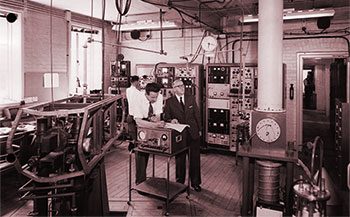How atomic clocks are finding new life in the emerging quantum industries
How atomic clocks are finding new life in the emerging quantum industries Atomic clocks, a long-established quantum technology, are finding their way into new industrial applications In 1955, scientists at NPL developed the first caesium-based atomic clock, using the quantum nature of atomic particles to provide accurate timing. Recent improvements in atomic clocks – both








